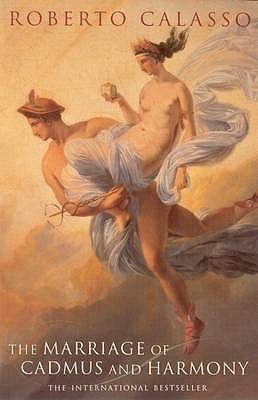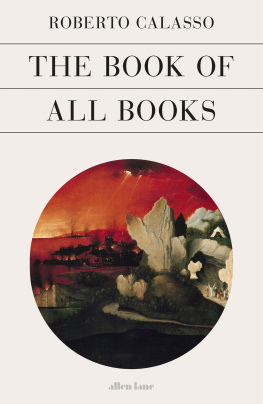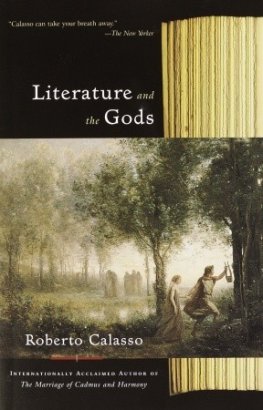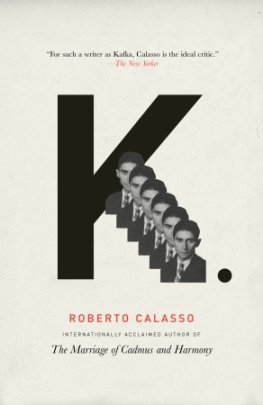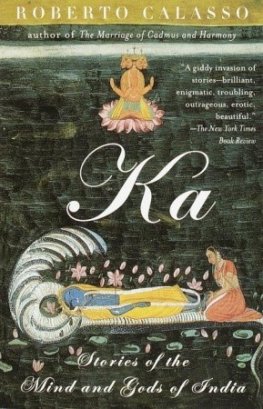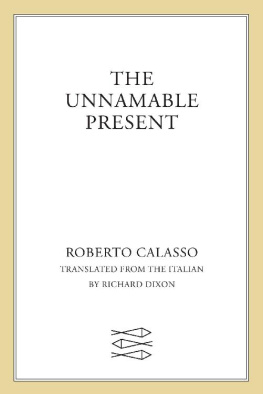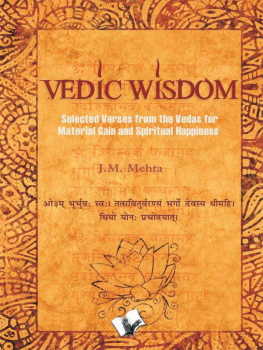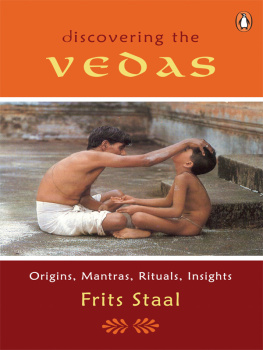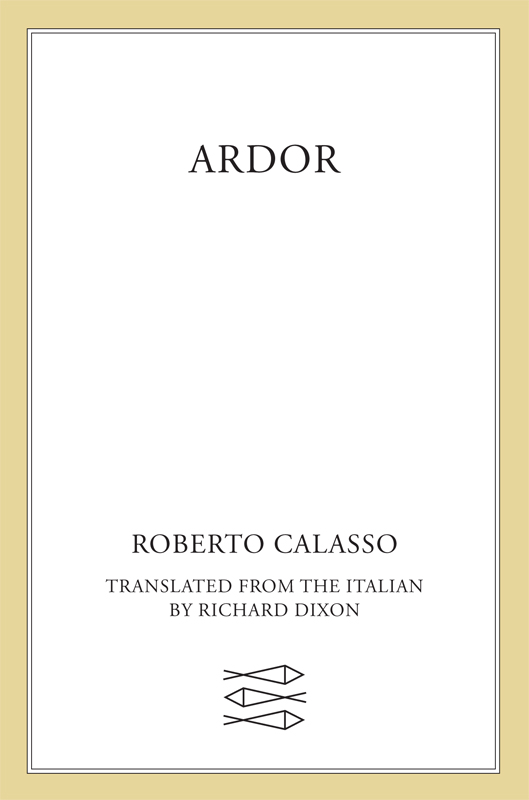Contents
Guide

The author and publisher have provided this e-book to you for your personal use only. You may not make this e-book publicly available in any way. Copyright infringement is against the law. If you believe the copy of this e-book you are reading infringes on the authors copyright, please notify the publisher at: us.macmillanusa.com/piracy.
TO CLAUDIO RUGAFIORI
CONTENTS
I. |
II. |
III. |
IV. |
V. |
VI. |
VII. |
VIII. |
IX. |
X. |
XI. |
XII. |
XIII. |
XIV. |
XV. |
XVI. |
XVII. |
XVIII. |
XIX. |
XX. |
XXI. |
How many fires are there, how many suns, how many dawns, how many waters? I say this, O you Fathers, not as a challenge. I ask it to know, O you poets.
gveda , 10, 88, 18
I
REMOTE BEINGS
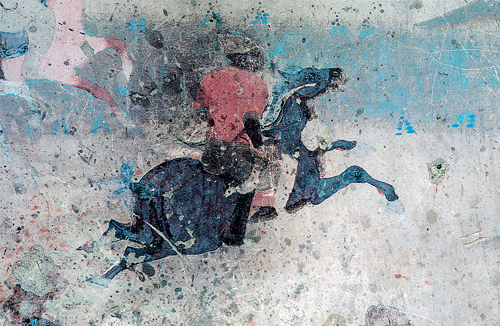
They were remote beings. Remote not only from modern man but from their ancient contemporaries. Distant not just as another culture, but as another celestial body. So distant that the point from which they are viewed becomes almost irrelevant. Nothing much changes whether that point is today or a hundred years ago. For those born in India, certain words, certain forms, certain objects may seem familiar, like an invincible atavism. But they are scattered fragments of a dream whose story has been blotted out.
We cannot be sure when or where they lived. When: more than three thousand years ago, though dates vary considerably between one scholar and another. Area: the north of the Indian subcontinent, but with no exact boundaries. They left no objects or images. They left only words. Verses and formulas that marked out rituals. Meticulous commentaries that described and explained those same rituals. At the center of which appeared the soma , an intoxicating plant that has not been identified with any certainty, even today. Even then they spoke of it as a thing of the past. They could, it seems, no longer find it.
Vedic India had neither a Semiramis nor a Nefertiti. And not even a Hammurabi or a Ramses II. No Cecil B. DeMille has managed to film it. It was the civilization in which the invisible prevailed over the visible. Like few others, it was liable to be misunderstood. There is no point looking for help from historical events, since there is no trace of them. Only texts remain: the Veda, the Knowledge. Consisting of hymns, invocations, incantations in verse. Of ritual formulas and prescriptions in prose. The verses form part of highly complex ritual actions. They range from the double libation, agnihotra , which the head of the family has to carry out alone, each day, for almost his entire life, to the most impressive sacrificethe horse sacrifice, a vamedha involving hundreds and hundreds of men and animals.
The ryas (the nobles, as Vedic men called themselves) ignored history with a disdain unequaled in the annals of any other great civilization. We know the names of their kings only through mention in the gveda and anecdotes in the Brhmaas and the Upaniads. They had no concern for leaving a record of their conquests. And those events about which we do have information deal not so much with exploitsmilitary or administrativebut with knowledge.
When they spoke of acts, they were thinking mostly about ritual acts. It is no surprise that they never foundednor ever attempted to foundan empire. They preferred to think about the essence of sovereignty. They identified it in its duality, in its division between brahmins and k atriyas , between priests and warriors, auctoritas and potestas. These are the two keys, without which no door is opened, no kingdom governed. The whole of history can be considered in the light of these relations, which are constantly changed, adjusted, concealedin the double-headed eagles, in the keys of St. Peter. There is always a tension that wavers between harmony and deadly conflict. On this diarchy, and its endless implications, the Vedic civilization focused its attention with supreme and subtle clear-sightedness.
Worship was entrusted to the brahmins. Government to the k atriyas. The rest was built on this foundation. But, like everything else that happened on earth, even this relationship had its model in heaven. A king and a priest were there as well: Indra was the king, Bhaspati the brahmin of the Devas, the chaplain to the gods. And only the alliance between Indra and Bhaspati could guarantee life on earth. But from the very beginning, between the two, there was a third figure: Soma, the object of desire. Another king, as well as an intoxicating juice. One who would behave ungraciously and elusively toward the two representatives of sovereignty. Indra, who fought to gain the soma, would in the end be banished by the very gods to whom he had presented it. And what of Bhaspati, the inapproachable brahmin with a voice of thunder, born in the cloud? King Soma, arrogant with the supreme sovereignty he had acquired, abducted Bhaspatis wife Tr and had intercourse with her. From his seed she gave birth to Budha. When the child was born, she laid him on a bed of muja grass. Brahm then asked Tr (and it was the height of shame): Tell me, my daughter, is this the son of Bhaspati or of Soma? Tr then had to tell the truth, that he was the son of King Soma, that she had betrayed her husband. And she, the model for all wives, had to admit it, for otherwise no woman would have been believed again (though repercussions of the event continued to be felt, from eon to eon). And a bitter war had to be fought between the Devas and the Asuras, the anti-gods, before Soma was finally persuaded to return Tr to Bhaspati. The gveda says: Terrible is the wife of the brahmin, if she is abducted; such a thing creates disorder in the highest heaven. That should have been enough for shortsighted humans, who sometimes asked why, and over what, the Devas and Asuras fought each other in the heavens, in those constant battles of theirs. Now they knew: over a woman. Over the most dangerous woman: over the wife of the most important of brahmins.
* * *
There were no temples, no sanctuaries, no walls. There were kings, but they had no safe and clearly defined kingdoms. From time to time they moved around on chariots with spoked wheels. Those wheels were their great innovation: before them, the kingdoms of Harappa and Mohenjo-daro had known only hard, solid, slow wheels. Whenever they stopped, their first concern was to build fires and to kindle them. Three fires: one circular, one square, and one the shape of a half moon. They knew how to bake bricks, but used them only for building the altar that was central to one of their rites. It was the shape of a birda hawk or an eaglewith outstretched wings. They called it the fire altar. They spent most of their time in an empty, gently sloping clearing where they busied themselves around the fires murmuring words and singing fragments of hymns. It was an unfathomable way of life, requiring long training. Their minds teemed with images. Perhaps this was also why they had no interest in fashioning and sculpting figures of the gods. As if, already surrounded by them, they felt no need to add others.


